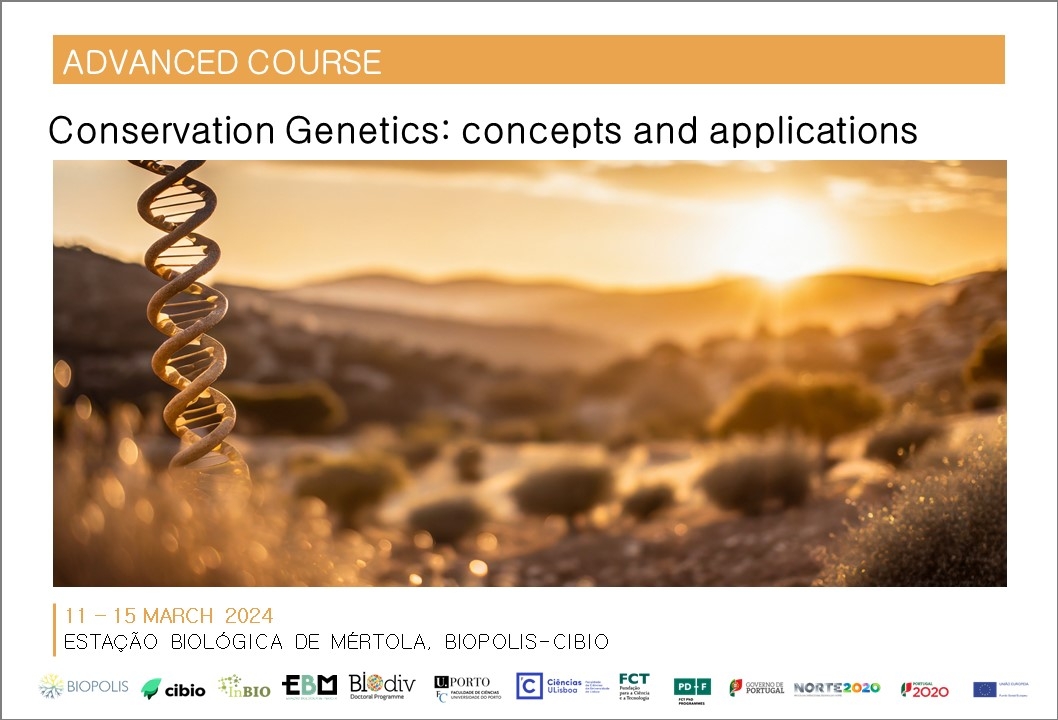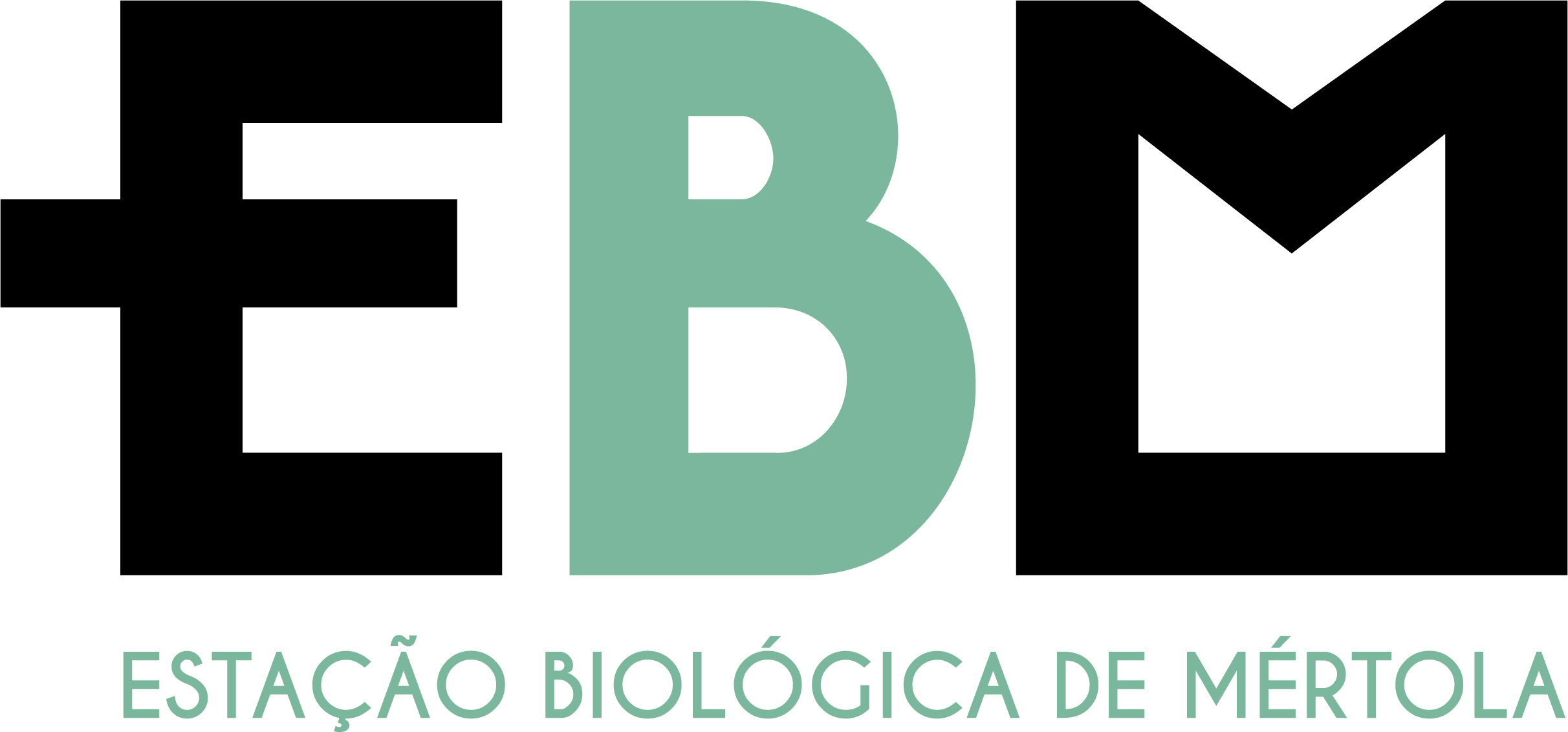Conservation Genetics: concepts and applications
Event
11 - 15 March 2024
Conservation genetics is a scientific field that deals with the application of genetics to understand and reduce the risk of population and species extinctions. It is both a fundamental and an applied science, aiming to preserve and manage the genetic diversity – and thus evolutionary capacity - of populations and species, by combining fundaments in evolutionary biology, molecular biology, population genetics, mathematical modelling, and ecology. Topics include inbreeding, loss of genetic diversity, genetic management, and the use of genetic markers to aid in species and individual identification, resolve taxonomic uncertainties, understand species biology, and wildlife forensics. This introductory course is composed of lectures, practical lessons, discussion forums and field trips, and includes multiple national and international guest lecturers. The course will be held at the Biological Station of Mértola, located in the Guadiana Valley Natural Park, a biodiversity hotspot area and birdwatch sanctuary where the Iberian lynx has been successfully re-introduced.

PROGRAM (35 hours)
March 11th, 2024
Estação Biológica de Mértola , Mértola (Face-to-face)

11 - 15 March 2024
Conservation genetics is a scientific field that deals with the application of genetics to understand and reduce the risk of population and species extinctions. It is both a fundamental and an applied science, aiming to preserve and manage the genetic diversity – and thus evolutionary capacity - of populations and species, by combining fundaments in evolutionary biology, molecular biology, population genetics, mathematical modelling, and ecology. Topics include inbreeding, loss of genetic diversity, genetic management, and the use of genetic markers to aid in species and individual identification, resolve taxonomic uncertainties, understand species biology, and wildlife forensics. This introductory course is composed of lectures, practical lessons, discussion forums and field trips, and includes multiple national and international guest lecturers. The course will be held at the Biological Station of Mértola, located in the Guadiana Valley Natural Park, a biodiversity hotspot area and birdwatch sanctuary where the Iberian lynx has been successfully re-introduced.

PROGRAM (35 hours)
Day 01 | March 11, 2024
Conservation genetics & genomics
•Genetic variation in natural populations and its importance for conservation
•Molecular methods overview: sampling, DNA extraction, amplification and genotyping/sequencing
•Practical lesson #1
•Molecular methods overview: first, second and third generation sequencing methods
Forum: Why preserving the legacy of genetic diversity in natural population (Jeremy Searle, Cornell University, US).
Day 02 | March 12, 2024
Mechanisms of evolutionary change
•Fundaments in population genetics: genetic diversity, Ne (Fred W Allendorf)
•Population subdivision, genetic drift and fitness
•Practical lesson #2
Evolutionary responses to anthropogenic changes
•Invasive species and hybridization
•Exploited populations and climate change
Forum: Guest lecturer - the problem of small populations (chaired by Fred W Allendorf).
Day 03 | March 13, 2024
Non-invasive genetic monitoring
•Genetic non-invasive sampling (gNIS): from field to the lab
•Practical lesson #3
Field trip to collect and preserve samples for genetic analysis (RicardoJorge Lopes & PauloCélio Alves).
Day 04 | March 14, 2024
Conservation and management
•Inbreeding depression
•Hybridization and outbreeding depression
•Demography and extinction
•Population connectivity
•Conservation units
•Practical group project
Forum: Guest lecturer - conservation units and genetic rescue (chaired by SoraiaBarbosa ).
Day 05 | March 15, 2024
Conservation in practice
•Conservation breeding and restoration
•Genetic monitoring
•Discussion of group projects
Forum: Conservation Genomics of Iberian species (José Antonio Godoy, Biological Station of Doñana, Spain).
COURSE INSTRUCTORS
Paulo Célio Alves (Coordinator) | FCUP, BIOPOLIS-CIBIO - CONGEN
Fred W Allendorf | University of Montana
Ricardo Jorge Lopes | FCUL, BIOPOLIS-CIBIO
SELECTION CRITERIA
The course will be open to a maximum number of 20 participants.
10 slots are reserved for BIODIV students.
Priority will be given to:
• 1st year and other PhD students attending the BIODIV Doctoral Program;
• PhD students attending other courses;
• Other post-graduate students and researchers.
REGISTRATION
95€ (students) | 200€ (other participants)
CIBIO-InBIO members will have an additional discount of 20%
No ECTS credits are awarded for attending the course. Participants receive a certificate of attendance without quantitative evaluation
Application deadline: February 15, 2024
To apply, please fill the form available HERE
